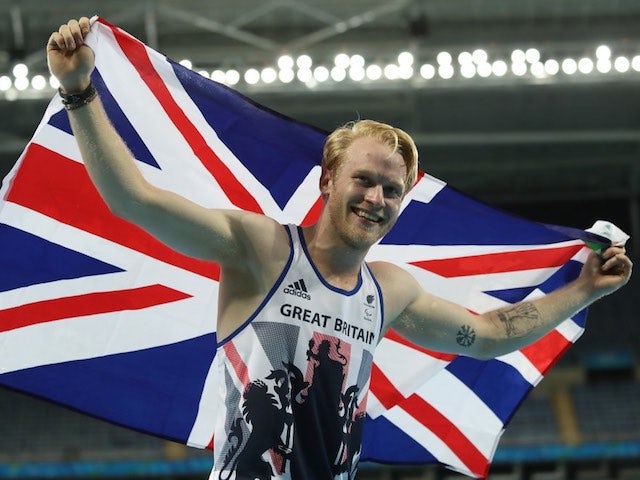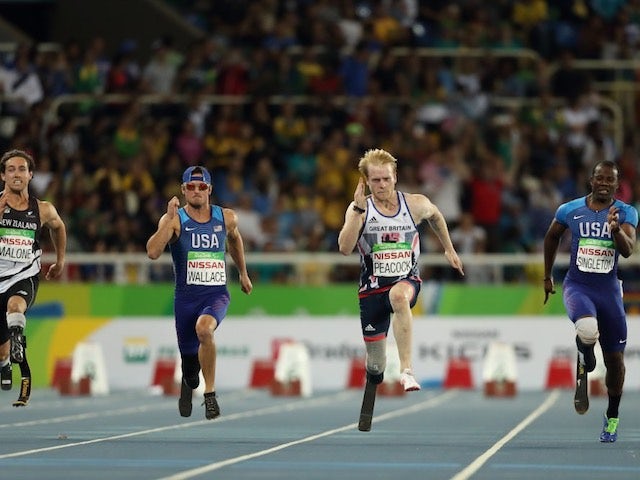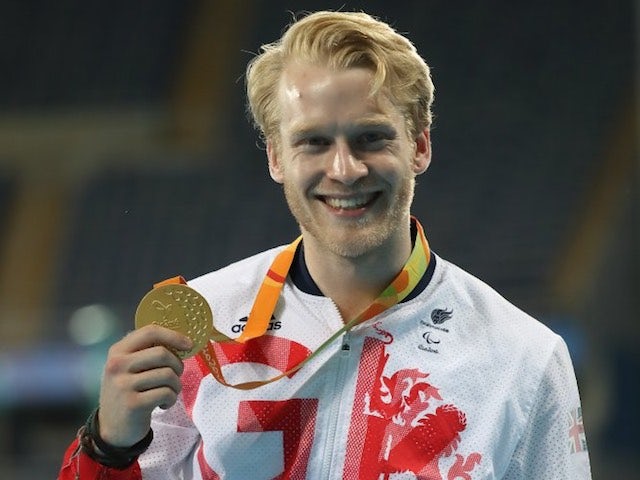When Jonnie Peacock stormed to gold in the men's T44 100m final at London 2012, a new star of the Paralympics was born.
During the intervening four years, Peacock has been forced to deal with injury problems and the emergence of a new group of challengers, in addition to adapting to his hard-earned status of being the man to beat.
The 23-year-old shrugged off the additional expectation to successfully defend his title in the blue-riband event of the Rio Games on Friday, though, equalling the Paralympic record he himself set in the heats to win a second gold medal.
After collecting his medal, Peacock spoke to Sports Mole about his achievement, how it compares to London and what legacy he hopes to leave.
 © onEdition
© onEdition
Congratulations Jonnie! You've had a bit of time for it to sink in now, so how does it feel to be a double Paralympic gold medallist?
"I don't think it's been nearly as long enough to sink in as I need. It still completely does not feel real. It's something that I came here to do, I wanted that, there's nothing more that... I think I wouldn't have been happy with second place.
"I've got a great support team around me, I've got an amazing coach in Dan Pfaff, I got back on the programme six months ago with him again and Michael Khmel from the UK leading it. They're both combined 60 years of coaching experience, so I've got a great team around me and again the guys at the British Athletics team, all the medical staff there, Andy Burke, Derry Suter and then all my family... there's so many people that are a part of this as well, it's not just one person."
You equalled your own Paralympic record on the way to gold, but said after the heats that a sub-10.80 may not even be enough to top the podium. Were you surprised at how comfortably you won with a 10.81?
"Yeah definitely, I was surprised, I thought it was going to be a bit quicker than that. I'm not exactly sure on the track surface how fast it is for the 100m sprint in all honesty with you. If you look at Usain Bolt and the men's 100m in the Olympics, it wasn't that lightning fast. Usain in the 200m too. I think it's been built for a bit more middle distance, is what I've been told.
"I feel like I executed a clean run, obviously I expected people to go faster than that, I expected myself to faster than that, but you know, it's the final. Sometimes the pressure gets to you. I know I tired out the last 20m, obviously it wasn't as clean a start as I got the night before but yeah, like I say, pressure sometimes makes you make ever so slight mistakes. My coach told me before 'mistakes will happen, it's whoever fixes those mistakes the best that will win'."
You mentioned pressure there - it must be a completely different type of pressure to what you experienced in London. How does that differ and how have you dealt with that?
"Yeah, completely. They're two different animals. London was its own thing because obviously I'd only just broken in that year, I was very young, it was my first Games, I kind of used it as my excuse really. I said, 'Well if I don't achieve anything I can always just say I'm only 19, it's my first Games'. I kind of had the excuses at the ready I guess but this time it was a much more close-fought year.
"Jarryd [Wallace] has been running some seriously fast times, Felix [Streng] has done some fast times... there are a lot of guys who have run very swift times this year. I didn't by any means think it was going to be an easy race whatsoever. It wasn't, but that's the cauldron, it's the Paralympics, it's the pressure pot. I think that everyone ran a good race, I think it was a head wind as well so if we'd had a nice wind behind us it would have been quicker. I'll take the win any day."
 © onEdition
© onEdition
It was expected to be a fiercely competitive race, but you won comfortably in the end. Do you feel like you dealt with the pressure better than your rivals?
"Yes. I always know that I do. That's always something I'm confident with. I know that when it comes to the championships, I give a good performance. I think every single championships I've been to, even the Europeans for example. Whatever kind of form I'm in I always seem to get better than that and always seem to get a cleaner run. Something happens to me - don't ask me what it is because I can't explain it to you - but it's just something that happens to happen every time I get on that starting block at a championships, my game just raises. Hopefully that will happen again in London 2017."
As well as the pressure, there's obviously the increased expectation coming in as defending champion - do you think you're adept in dealing with those sort of tests?
"Yes. Again the pressure can only get to you if you don't have a process to work on. I had my process that I had to work on here. I had my cues where I was thinking on the start line. That's all I was thinking, I was focused, I made sure that I was ready for it. I'm sure if you look on the start line, there's a lot of guys that were having fun with the camera. That's fair enough if that's what they're here to do but I was focused, I wasn't letting anything distract me.
"I made sure that even if something distracted me for a slight second, I brought it right back and I think it's just the confidence again. I've got great coaches, I've got great technique I can improve on because of these coaches and I've been improving week in, week out and I was in good form here. So it's not just down to me, it's down to the preparation that I've been given here."
As an achievement, how does this victory compare to London 2012?
"They're completely different things. If you look at London as a personal achievement I don't think anything's ever gonna beat that. It never will. London is a home Games, my first Games, a gold medal... everything was absolutely perfect. Rio however, as a sporting achievement is bigger. It always will be.
"The event was tougher, the class has moved on in the last four years - to stay at the top for four years is a very hard thing to do. To bring it back round at the right time. Again, at 2012 I was naive, I kind of just came into it that year and I kind of just did it. This year I've had losses, that year was I undefeated... so many different things to deal with, but like I say, you have your processes and you have your confidence because you're in a good place."
Many years from now when you look back on your career, which of these two gold medals do you think you will be the most proud of?
"I think London 2012. I don't think anything would be able to beat that. As a personal achievement, nothing's ever gonna beat that - again though, it's hard because a sporting achievement, Rio is always higher. They're kind of on a level but they're in different leagues. It's almost like asking what's better, winning the Premier League or the Spanish league? They're different. They're completely different things and you have different things to deal with."
 © onEdition
© onEdition
One thing that has been noticeable at these Games is how many British athletes were inspired by your success in London. What is it like to be on the same team as them and to see them now winning medals too?
"Well I'm sure that's to do with the whole GB team in London, we all had success and I'm sure a lot of guys saw that and wanted to emulate it. I know Georgie [Hermitage] for example, she's been around for a while now and she's had a lot of training. Libby [Clegg] has put herself into a great situation now, she's got a great guide runner in Chris Clarke and she's got a great coach, so they've all put themselves into situations to make sure it's achievable. Obviously it's really awesome to see."
Do you think the legacy of Paralympic sport will continue to grow considering Britain's success already in Rio?
"Definitely, without a doubt. It's going to carry on, it's going to get bigger and you're seeing already that GB are winning a lot of medals and I see no reason why that won't continue. I think we'll have a great Games."
Team GB claimed a record medal haul at the Olympics earlier this summer - did their success help to spur ParalympicGB on?
"Definitely. I think we saw that the GB team won a lot of medals and yeah, we know that we've come here with a strong team as well which is stronger than we were in London. We want to win a lot of medals. Paralympics sport always moves on and it's not easy to win medals in any class, so I think it's important that we keep getting out there."









